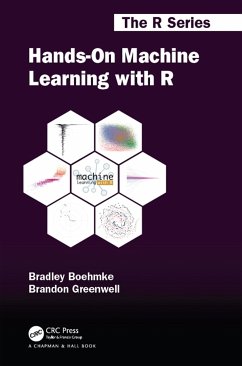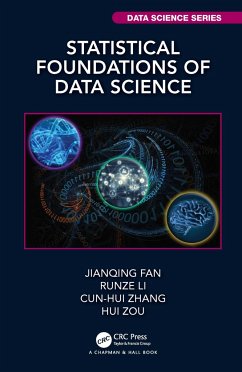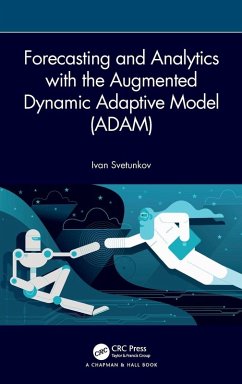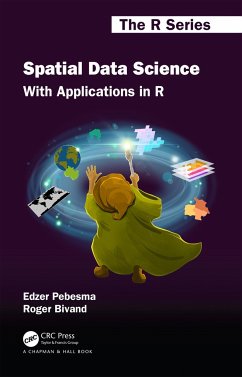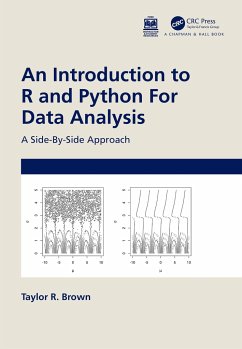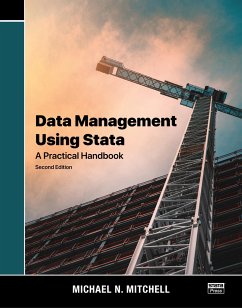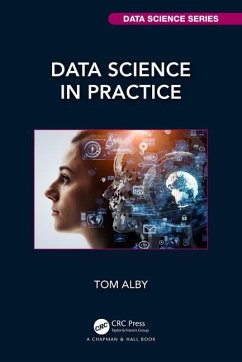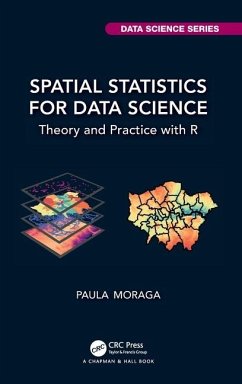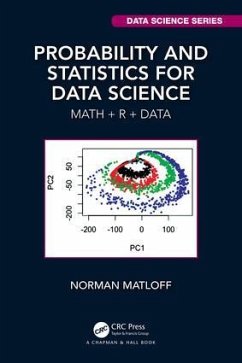Tiffany Timbers (University of British Columbia)Trevor CampbellMelissa Lee (Assistant Professor, Uni of British Columbia, Canada)
Broschiertes Buch
Data Science
A First Introduction with Python
Versandkostenfrei!
Versandfertig in 1-2 Wochen
Weitere Ausgaben:

PAYBACK Punkte
35 °P sammeln!




Data Science: A First Introduction with Python focuses on using the Python programming language in Jupyter notebooks to perform data manipulation and cleaning, create effective visualizations, and extract insights from data using classification, regression, clustering, and inference.
Tiffany Timbers is an Associate Professor of Teaching in the Department of Statistics and Co-Director for the Master of Data Science program (Vancouver Option) at the University of British Columbia. In these roles she teaches and develops curriculum around the responsible application of Data Science to solve real-world problems. One of her favourite courses she teaches is a graduate course on collaborative software development, which focuses on teaching how to create R and Python packages using modern tools and workflows. Trevor Campbell is an Associate Professor in the Department of Statistics at the University of British Columbia. His research focuses on automated, scalable Bayesian inference algorithms, Bayesian nonparametrics, streaming data, and Bayesian theory. He was previously a postdoctoral associate in the Computer Science and Artificial Intelligence Laboratory (CSAIL) and Institute for Data, Systems, and Society (IDSS) at MIT and a Ph.D. candidate in the Laboratory for Information and Decision Systems (LIDS) at MIT. Melissa Lee is an Assistant Professor of Teaching in the Department of Statistics at the University of British Columbia. She teaches and develops curriculum for undergraduate statistics and data science courses. Her work focuses on student-centered approaches to teaching, developing and assessing open educational resources, and promoting equity, diversity, and inclusion initiatives. Joel Ostblom is an Assistant Professor of Teaching in the Statistics Department at the University of British Columbia. He teaches and develops data science courses at the graduate and undergraduate level, with a focus on data visualization, data science ethics, and machine learning. Joel cares deeply about spreading data literacy and excitement over programmatic data analysis, which is reflected in his contributions to open source projects and openly accessible data science learning resources. Lindsey Heagy is an Assistant Professor in the Department of Earth, Ocean and Atmospheric Sciences and Director of the Geophysical Inversion Facility at UBC. Her research combines computational methods in numerical simulations, inversions, and machine learning for using geophysical data to characterize the subsurface. Primary applications of interest include mineral exploration, carbon sequestration, groundwater, and environmental studies.
Produktdetails
- Chapman & Hall/CRC Data Science Series
- Verlag: Taylor & Francis Ltd
- Seitenzahl: 452
- Erscheinungstermin: 23. August 2024
- Englisch
- Abmessung: 254mm x 178mm x 24mm
- Gewicht: 846g
- ISBN-13: 9781032572239
- ISBN-10: 103257223X
- Artikelnr.: 70148538
Herstellerkennzeichnung
Libri GmbH
Europaallee 1
36244 Bad Hersfeld
gpsr@libri.de
Für dieses Produkt wurde noch keine Bewertung abgegeben. Wir würden uns sehr freuen, wenn du die erste Bewertung schreibst!
Eine Bewertung schreiben
Eine Bewertung schreiben
Andere Kunden interessierten sich für





